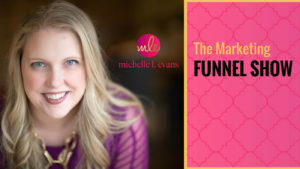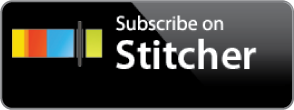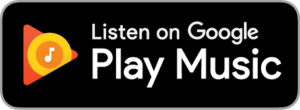
Episode 81: Unlocking the Mystery of Marketing Funnels
Today, I am interviewing my client Baz who lives in the UK.
What I loved about working with Baz is that he is the OPPOSITE of a marketer BUT he knew he needed a marketing system to attract, engage, and convert his audience into buyers which is why we started working together on his first marketing funnel.
Baz has been in business since 2007 when he originally started as a software developer after leaving a successful corporate job thinking the entrepreneurial road would be more fulfilling and exciting.
Little did he know the entrepreneurial road would require him to become a business owner, a marketer and use his computer programming skills to grow into a business systems expert.
Baz is going to share a lot about his school of hard knocks path to his current business focus as a Profit First Professional. He loves people, small business, and systems.
Using his lessons, insights, and skills gained during his own entrepreneurial journey, Baz helps amazing people design simple systems to ensure their small business gives them the financial security they desire.
I’ve seen and heard such great client testimonials from Baz’s work, so if you know someone who runs a small business that’s stressing them out, Baz is the person to turn to. He has a talent for taking chaos and turning it into simplicity that turns to profit.
Let’s jump into the interview!
 Biggest Show Takeaways:
Biggest Show Takeaways:
Tell us a bit about you and your business.
- I help small business owners design a plan for their business. When I was a software developer, I was all about systems, but now I help them more generally. This is not just about their software but about how they run their business themselves, with a 12-week program that hopefully ends with them in a position where their business is financially secure.
- I quit my day job in 2007. I took a little detour where some friends and I started our own company, and we took a load of money from investors. I soon realized I didn't want to be massive, but I wanted to have something that was sustainable that wouldn't require me to do all the work all the time and allow me to just concentrate on the bits that I enjoyed. I had to come up with a way of managing a team so that we could hand the work out — and make sure that it was done to a high enough quality. I had to put systems in place for them.
- I had to start getting bigger clients for myself— bigger and better projects. I went on this journey about learning the sales process and things like that, and I was reading all this stuff about how you need to have stages and protection handling. I put in a CRM system because that's what you're supposed to do — and it didn't work for me at all — until I had this revelation where I suddenly realized that it wasn't the process that was wrong — it was the way I was approaching it.
- The clients that I really enjoyed working with were the ones where we had quite a close relationship, we had a bit of trust between us. When they asked for something, and I pushed back on it, they knew that I was doing it because I understood their business, and I was doing it for the right reasons. I started trying to switch my sales process around so that I was asking myself, “Will we work well together in the future?”
Explain to me the process that you take yourself through to decide if a potential client is someone you want to work with.
- When I get a new client, I ask them to fill out a questionnaire about themselves with questions like: “What are you looking for out of this in a year's time?” and “In an ideal world, would you be growing your business by £100,000 or £10,000 because that gives me an idea of a budget.
- There are a few big questions I ask myself about each individual client, and these are really personal questions:
- Do I connect with the person that I'm talking to?
- Can I see your purpose in life?
- Do you enjoy working with other people?
- Can I actually make a difference in your life, in your business? Will I make things better for you?
- Will you make things better for me? Will I learn from you, or will I get something out of this relationship beyond just a paycheck at the end of the project?
- If someone scores all no’s, then I immediately refer them to someone else. If someone gets three out of five, I'll weigh up which of those questions is more important at that time. If someone's five out of five, I dive straight in and work with them immediately, and I know it's going to work out.
Cash flow can be a really tough thing for many business owners, and it can stop us from hiring help or getting systems in place that support our business for growth. I'd love for you to talk a little bit about getting control of your cash flow.
- I had this team, and I was losing money every month. I was paying out all this money in wages. I knew there was a bit of a problem, but I wasn't sure what it was. I went on Audible, and I just started looking for business books about money, and I found this one called Profit First by a guy called Mike Michalowicz, downloaded it, started listening to it.
- The point of the book was the classic principle of “pay yourself first.” Ultimately, your standard business accounting is sales minus expenses equals profit. What you're doing is you're putting your expenses last and putting your profit first. If you pay yourself first, you're making sure that you, as the most important person in the business, get paid. By putting your expenses last, you then immediately notice if you're spending more than you should be because your bank balance will be empty, and there's no way around it.
- The book has several warnings of what NOT to do, but I disregarded that advice and did some stuff anyways, A year later, my financial situation was worse, and I decided it was time to revisit the guiding principles in the book and follow them properly.
- In three months, I was making a profit instead of a loss, and within six months, I was paying myself a quarterly bonus, which was like a revelation to me. It wasn't a huge bonus — I just bought myself a nice lunch — but it was the fact that I'd gone from making this loss to being in a position to buying myself a nice lunch on top of what I normally paid myself as well. That was absolutely amazing because it was so transformative not for the business as a whole, but for me as a business owner in terms of feeling confident about where I was and what I was doing.
Now that you have this focus for your business, why did you want to get a marketing funnel in place for it?
- I've always had trouble explaining what I do to people. One of the things you've always spoken about is taking people on a journey from where they are now to realizing that my service will be of great benefit and value to them.
- A lot of people try and dive in and sell stuff too soon. That's why you come across as that pushy, unpleasant, foot-in-the-door kind of person. If you take your time, and you wait until the client is ready, then it makes everything much easier because, ultimately, the close shouldn’t be you trying to persuade someone. You want all the persuasion to have already happened by that point, and so putting a funnel in place takes people through that, that slow process at their own pace, which is really, really important.
- I'm a systems guy, and you told me what the system needs to do, so I basically built it. I understood that a funnel needs to start very gently and lead people in, but then end on an offer, and that was kind of the thing. If you're leading them through really gently, they quite often don't want to actually get in touch with you, whereas if you say, “And now, I'm ready for you,” they'll get in contact, which is something I'd never even thought of before, and that was quite a revelation.
- When I was in-person networking, I kept on meeting people who knew they had a problem but weren't sure what the solution was, or they were ready to choose and they knew what solution they wanted and needed a supplier for it. At both those stages, when I was talking to them face-to-face, I couldn't get my message across because either they didn't understand what I was talking about because they weren't ready for it, or they'd already decided what the solution was going to be, and mine wasn't a perfect fit for it.
- It's that really nice gentle thing, and I'm talking to them where they currently are in words that they understand — which I wasn't doing before. I thought I was being quite plain and simple, but actually, I was talking above their heads.
What concerns did you have as you were building it or even before you started building a funnel?
- I wasn't sure what I was doing, since it was all new to me, building all this stuff. The stuff I'd done before had been a waste of time because I kept reading conflicting information and trying out different things. It was nice to have some direction, but I didn't want to spend a fortune on getting all these new leads in and then finding out that they were useless leads. Again, having the internal questionnaire kind of thing meant it's useful on that side of things because when people come through, I can start evaluating them and saying, “Well, actually, do I want to keep going through this?”
- Before I started working with you, I spent a load of money on Facebook ads or whatever, and it didn't work, I didn't have any learning from it. Whereas all this stuff we've gone through over the last few months, I've got a better understanding of what does work now because we've tried this, and that's not worked, so we're just changing directions slightly each time. Before, I was going like 180 each time and going in completely the opposite direction, and it meant that I couldn't figure stuff out.
- Because we've done it slowly and methodically and strategically, it meant that when something doesn't work, we can figure out which bits of it did work and then move in that direction, which is really useful.
Was your biggest “aha” in the funnel creation process just staying focused on the problems and on the message?
- No, actually. Because I'm a software developer, when I quit my day job, my dream was always to build software as a service. As a software developer, you don't have to talk to anyone, you just get people signing up, and you make money every month. The thing that's come out of this is understanding that I need to get out and talk to people and put myself out there, and there's no hiding behind a screen and texting people. It's all about the conversations I can have which I was always scared to do before — but I'm not scared to do that now — and that's why I'm doing the videos and all that sort of thing.
Do you know what shifted or why you're not scared anymore?
- I can tie together what I do with face-to-face networking. I get a good response to face-to-face networking, and I wasn't getting one online. Maybe it is something about the way I carry myself or my actual physical voice rather than the way I write that makes a difference. I'm going to make sure that I'm involved in a very personal way in all the stuff I do going forwards now. It's confidence and a mindset thing that probably comes across in how I present myself.
Now that you have this funnel in place, can you talk about your strategy for getting people to engage with it now?
- I'm still doing lots and lots of face-to-face stuff, but I talk to people about where they're at now, and then I bring them into the funnel. Before, every time I was talking to someone, I was doing that salesperson thing and going in too fast. Now, I'm just going to let it go really really slowly. I'm going to do a load of stuff, but the stuff I'm doing online is softer. People can just get to know me at a slower rate, at their own pace rather than sort of diving in too quickly, which is what I was doing before.
If you were to talk to somebody who was not in love with marketing in general and they were considering working with me, what would you say to them?
- If it was a software developer, it's really easy. I’d tell them: “These are testable, measurable, scientific things that you're doing because you're going to come up with a strategy, and you're going to hypothesize and see if it works, then measure the results. If it doesn't work, then you'll adjust the strategy accordingly.”. For software developers, that's a win, straight out.
- For non-software developers, it's about slowing down and taking people through that journey. Part of the reason that people will get put off from buying from you is because if you dive in too early, then you're going to put them off, it's going to get their backs up. Certainly, the bits of the funnel that can be automated or that are taken out of your hands forces you to slow down, you can't dive in too early, you can't jump in and annoy someone. Because you've got a strategy, and it comes back to that whole thing at the start, which is once you've got a strategy, once you've got a system in place, each individual step that you take is really really easy, so you don't have to worry about it. It's nice and easy for you, and it's nice and gentle for them.
If people want to experience the funnel that you created on your own, where can they get that?
- My website is clientrobot.com, and if you want a free copy of the core chapters of Profit First, I am authorized to give that away, which is clientrobot.com/book-download.
Want to know which marketing funnel is right for you and your business? Take this free and easy quiz, and in less than 5 minutes, you’ll know EXACTLY which funnel is right for you.
Links mentioned in this episode:



